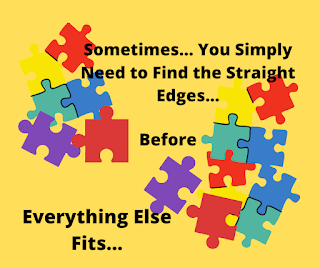Researcher, Educator, Writer, Survivor
I am beginning this post with my Author’s Note.
I am not a physician by training nor trade. I am a researcher, an educator, and a writer.
The Researcher in Me:
Last week I wrote how my own experience with what may be called COVID “Brain Fog” offered me new insight on how people experiencing dementia may feel. (If you missed that one you can read it HERE.)
My inexplicable memory loss troubled me. Why was it I couldn’t remember days and months? I started a bit of research. Because I am no longer at the university, my initial research took the form of reading numerous articles on-line. I know enough to not trust everything everyone claims, so I checked the credentials of the authors, the reliability of the sources, and scrutinized the method for collecting the data.
What did my cursory research reveal? There is substantial evidence that some medications alone can cause the mind to muddle. Put a few of them together and you have the ingredients for a perfect storm…or in this case, a perfect “fog” to roll in. Some of the meds are prescribed while others are available over the counter at the local pharmacy.
I’m not on any prescription drugs, but when COVID hit my system, I took both an antihistamine and ibuprofen. I also took cold and flu medicine at night to help me sleep. Some of the literature suggests any of these alone can cause a temporary confused state of mind.
The Educator in Me
Yeah, well, that’s why I’m offering this post. I am not saying this is true for everyone, but it is worth considering. And researching.
The Writer in Me
I am in the throes of crafting a novel where the main character’s mother is experiencing moments of forgetfulness. I used my own illness and research experience to help Katharine (“Kat”) demonstrate empathy for her mom. Here’s a brief (read “condensed”) excerpt from my latest manuscript. In this scene my main character and her mother, Margaret, known as Mimi in the family, are working on a jigsaw puzzle together. Kat broaches the subject of forgetfulness with her mom.
“Mimi, remember when I had COVID?”
“Oh, do I ever! That was the longest two weeks of my life. I thought we’d all dodged the bullet but here I was sitting at home and not able to come take care of you. You’re a mom, so you know how hard that was for me.”
Kat smiled and scooted closer to her mother. “I do. But mom, remember the other day, how you were talking about sometimes getting a little muddled in your thinking? I was thinking about that on my way home.
“Do you remember when Matt drove you over to the house the week or so after my quarantine ended and I was deemed ‘safe’?”
Margaret took her daughter’s hand and patted it. “I remember. It filled my heart to lay eyes on you. To know you were okay.”
“Mom, I honestly didn’t remember what day or even what month it was right then and there. I was struggling. I tried to figure it out.
“You had been sick, honey.”
“I’d been declared well for more than a week.”
Mimi leaned back in her chair. “What are you saying?”
Kat drew in a deep breath and exhaled slowly. “I think that day I had a glimpse of what grandma felt when she knew something but couldn’t remember exactly what it was.”
Mimi studied her daughter. “You think I have dementia like my mother?”
Kat laughed. “Not at all. Unless I do, too. All I know is that the mind is a curious organ. I think different things can play tricks on us.”
Kat turned in her chair to face her mother. “Maybe sometimes we decide what is going on based on a person’s age. We blame COVID for me getting rattled and dementia for grandma. Who knows? Maybe there was something else going on in her body.”
“So you think when I forget things it may not be my age?”
“Or maybe a little bit of your age and a whole lot of something else. I mean, we do know other parts of our bodies slow a bit as we age. Why not our brains?
“I don’t have the answers, Mom. I just think it’s worth mulling over, though. Oh, look, here’s that missing part of the edge.”
“Finally!” Mimi exclaimed as Kat fitted the piece in to complete the outside frame of the puzzle. “Once you have the straight edges everything else will fall into place.”

No comments:
Post a Comment
Leave your comments here. I look forward to hearing from you.